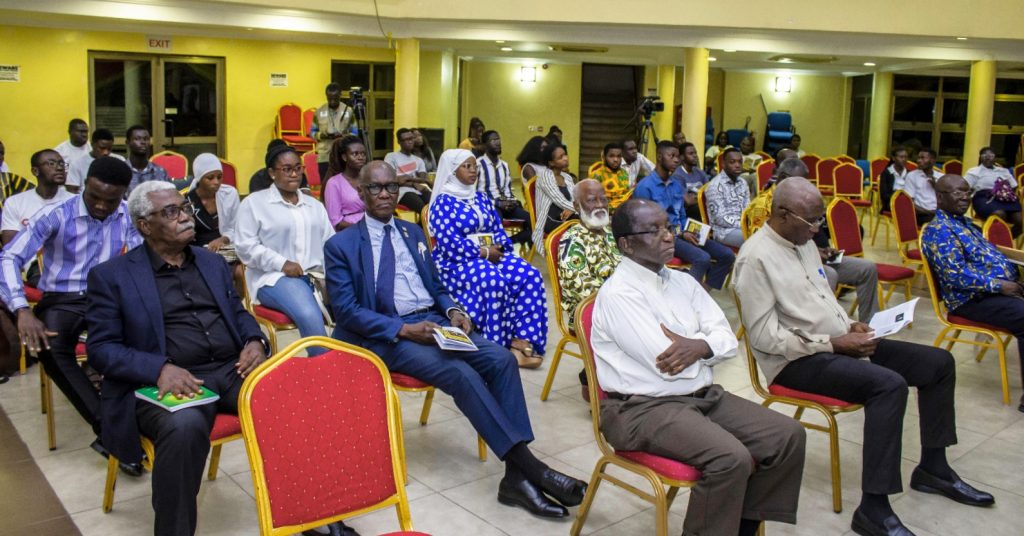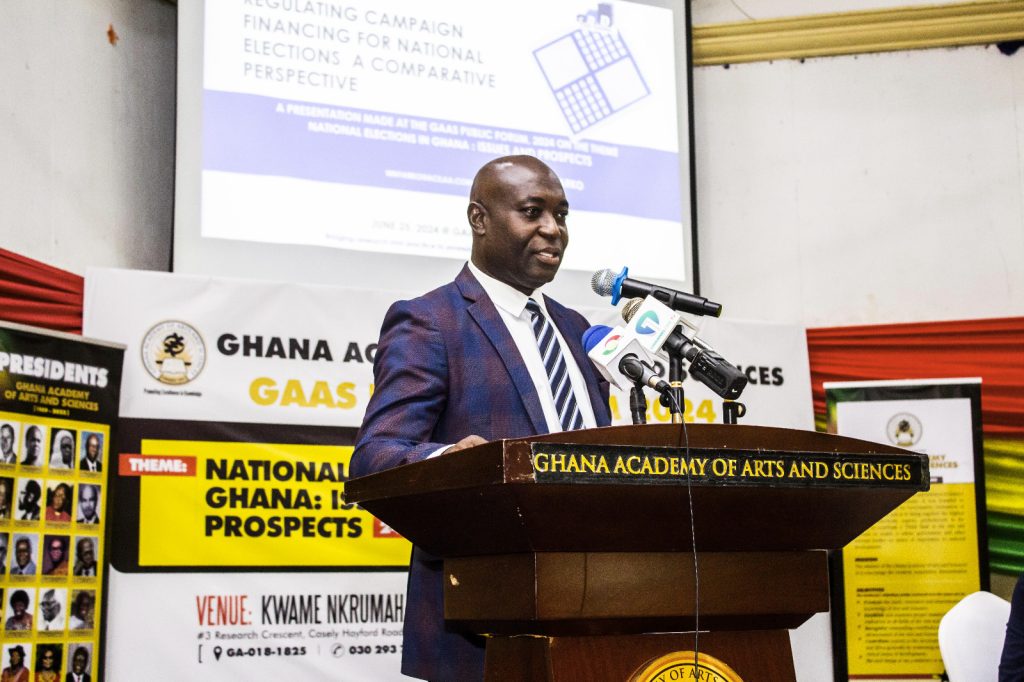By Benjamin A. Commey
Accra, June 26, GNA – Mr Peter Mac Manu, a former National Chairman of the New Patriotic Party (NPP), has called for a regulation to place a time limit on political campaigns in the country.
He said that would enable elected governments ample time to implement their policies and programmes for national development.
It would also reduce the financial burden imposed on political parties and would-be candidates by long-term campaigns.
The former Chairman of the NPP gave the suggestion at the Ghana Academy of Arts and Sciences’ annual public forum on the theme: “National Elections in Ghana: Issues and Prospects”.
Mr Manu, who was speaking on the topic: “Regulating Campaign Financing for National Elections: A Comparative Perspective”, said the current campaign period in the country was too long, giving elected governments no respite to effectively implement their policies.
“I think in this country we use to say that the next elections begin after the end of the last election. How can you campaign for four years?
Mr Manu, therefore, proposed that campaigns should only begin when the Electoral Commission (EC) had received and okayed an aspirant’s candidature, making them eligible to contest the elections.
“I mean, we live in this country where we have seen some candidates present their nominations to the EC and they are rejected and the matter will end up in the courts, either the Supreme Court will come in or the High Court will come in even if they have won the elections as it happened in the Assin North Constituency recently.
“So, if the EC has not approved your candidature, you may win your party’s parliamentary or presidential primaries, but you are not a candidate,” he said.

He opined that: “So, for me, the day that the EC will approve your nomination, in the current circumstances, that is September 19, that’s when you become a candidate, that’s when you can call your campaign. But that is not the case and I think this is an area we have to look at because we can’t spend four years in campaigning.
“And I’m happy that a group like the Ghana Bar Association has made this call and our campaign periods are too long and we have to shorten it. In fact, in Nigeria, it’s six months, in Kenya, it’s six months, but in Ghana, if I may say, it’s four years.”
Mr Manu, who was also the NPP Campaign Manager for the 2016 and 2020 elections, called for a complete reform of the country’s Political Parties Act 2000, (Act 574), to check campaign donations and expenditure going forward.
Expenditure limits, he said, should apply to both political parties and their parliamentary and presidential candidates, adding that the reform should clearly identify what constituted an election expenditure and what did not, to control incessant spending.
“This unlimited amount of money that people can donate or political parties can expend is not the right way to go,” he indicated.
On monetisation of politics in the country, Mr Manu noted that the cost of politics had increased astronomically, over the years, in both internal and general elections.
The situation, he said, was denying some competent citizens, including the youth, women and persons with disabilities from putting themselves up for political positions.
Going forward, Mr Manu called for bold steps to be taken to end the canker and curb the potential of handing over power to the highest bidder in future.

Mr William Nyarko, Executive Director, Africa Centre for International Law and Accountability, speaking at the same event, also bemoaned the absence of campaign financing regulations in the country, adding that immediate steps be taken to develop one.
He said regulation on campaign financing would enable the citizens to hold individuals and political parties accountable.
“The current framework states how political parties are funded but not candidates of the parties,” he noted.
Mr Nyarko described the existing legal and regulatory framework on financing of political parties as “not fit for purpose”, and called for amendment of the acts, including the Political Parties Act, to meet the need of the time.
He also proposed State funding of political parties as a way of holding the parties accountable.
GNA